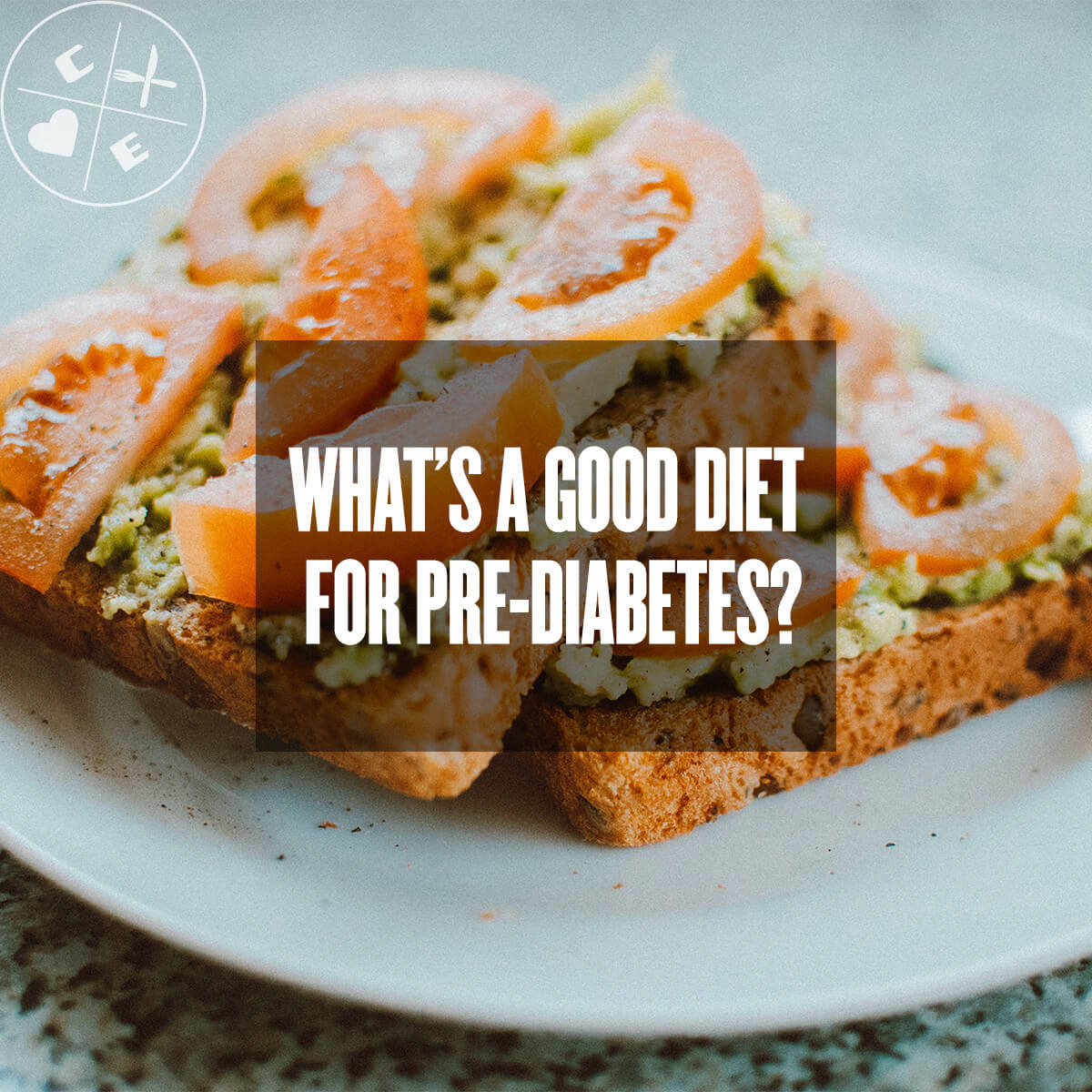Feeling overwhelmed by all the advice out there when it comes to nutrition and diabetes prevention? You're not alone. With so much conflicting information out there, it can be hard to know what's best to do.
The good news is that a pre diabetes diet doesn't have to be complicated. As a matter of fact, with just a few simple adjustments, you can make sure you're setting yourself up for better health. So, if you think you may have pre-diabetes or are looking for ways to lower your risk of diabetes, here is what you need to know about pre-diabetes diets and how they can help improve your health.
Understanding Pre-Diabetes and Impaired Glucose Tolerance
Do you have pre-diabetes, or are you at risk for it? If so, understanding pre diabetes diet is key to managing your condition and preventing more serious issues down the line. Pre-diabetes is characterized by higher-than-normal blood sugar levels but not high enough for a type 2 diabetes diagnosis. It can also be referred to as impaired glucose intolerance (IGT).
When it comes to diet, the main goal of pre-diabetes management is controlling your blood glucose levels and keeping them within a healthy range. This means eating less processed and refined foods that cause rapid spikes in your blood sugar, such as sugary snacks and meals. Instead, focus on eating more nutritious whole foods including fruits, vegetables, legumes, lean proteins, nuts, and seeds. You should also choose complex carbohydrates such as whole grains instead of quick-burning simple carbohydrates like white bread or white rice. Eating plenty of fiber is also recommended because it helps slow digestion and helps keep your blood sugar stable throughout the day. Finally, reducing your intake of unhealthy fats from fried foods, processed meats, and full-fat dairy products can help improve insulin sensitivity.
Focus on Lean Proteins, Healthy Fats, and High-Fiber, Complex Carbs
Living with pre-diabetes can be a challenge, but it doesn’t have to be overwhelming. To keep your blood sugar from rising to an unsafe level, you need to be mindful of what you eat. The good news is that there are many nutritious foods that can help you stay healthy and manage your condition.
When it comes to creating an ideal pre diabetes diet, focus on lean proteins, healthy fats, and high-fiber, complex carbohydrates. Incorporate plenty of fresh fruits and vegetables into your meals, as well as nuts and seeds for added nutrition. Reduce or eliminate processed foods from your diet as much as possible, and aim to limit added sugars and saturated fats where you can. Sticking to whole grains like brown rice or quinoa, legumes, tofu, and other plant-based proteins is also recommended.
These simple dietary changes can make a big difference when it comes to controlling pre-diabetes symptoms. And while these specific guidelines may apply to those with pre-diabetes; they’re also great reminders of how important it is for everyone to eat a balanced diet full of nutrient-rich foods!
Portion Control and Calorie Reduction
Portion control and calorie reduction are key components of a diet for pre diabetes if you want to improve your health. Studies have shown that eating smaller portions throughout the day can help regulate your blood sugar and prevent fluctuations.
The number of calories you should take in depends on your age, sex, activity level, and overall health, but it’s important to be mindful of how much food you’re eating and pay attention to how full you feel. Here are some simple steps to help with portion control and calorie reduction:
- Prep your meals in advance. This will help you map out your daily caloric intake more easily.
- Use smaller plates or bowls so that you don’t feel like you’re missing out when eating smaller portions.
- Avoid distractions when eating, such as watching TV or using your phone, as this can often lead to overeating.
- Cut out snacks between meals and opt for healthier alternatives like fruit or an occasional handful of nuts instead of processed snacks like chips or cookies.
- Drink more water instead of sugary drinks like soda, which are high in calories and can lead to weight gain if consumed regularly.
Limit Added Sugars and Refined Carbs
If you have pre-diabetes, one of the most important steps to managing it is to limit added sugars and refined carbs and follow healthy meal plan. While foods like cakes, cookies, and candy are full of carbohydrates–and mostly empty in terms of nutrition–these types of food can cause your blood sugar levels to spike, which is obviously not great.
So what can you do? Here are a few tips:
- Cut out soda and sugary drinks–like juice, even if it’s freshly squeezed–and replace them with caffeine-free and sugar-free beverages like water or sparkling water with a splash of juice for flavor.
- Eliminate processed snacks like chips and cookies, and instead opt for snacks that contain fiber like fruits, vegetables, nuts, and seeds.
- Eat more whole grains such as oatmeal, quinoa, or brown rice instead of refined carbohydrates such as white bread or white rice.
- Avoid added sugars (i.e., those that don’t come naturally from fruit) as much as possible – look at food labels to make sure there are no added sugars in the ingredients list.
By focusing on eating nutritious foods in moderation, and limiting added sugars and refined carbs, you can help manage your pre-diabetes and get on the path to better health.
Regular Exercise and Activity for Improved Insulin Sensitivity
Regular exercise and activity might not seem like a dieting tip, but it is. Moving your body not only burns calories but also helps increase insulin sensitivity, which can help lower blood sugar levels and improve health.
You don't need to sign up for a marathon or become a fitness fanatic to get the benefits of exercise. Just a moderate amount of physical activity can help improve your health and well-being. Here are some ideas:
- Take a 30-minute walk several times per week.
- Join an online yoga class or fitness video that you can do at home.
- Find an exercise buddy and go for jogs together after work.
- Look into sports leagues in your area like kickball or flag football.
No matter what type of exercise you choose, be sure to talk with your doctor about setting goals for physical activity and how much is right for you. Regular movement can make all the difference when it comes to managing pre-diabetes and improving your health overall.
Eating a healthy diet can be a daunting task, especially when you’re managing pre-diabetes, but understanding what food types to avoid and which to focus on can be just the reminder you need to switch up your diet. By focusing on a low-glycemic, balanced diet, and avoiding processed foods and added sugars, you’re setting yourself up for long-term success in improving your overall health.
If you’re in search of the right diet plan for pre-diabetes, then you need to visit Clean Eatz Kitchen and check out the various meal options that we have to offer. You can also build your desired diet plan and get all your meals delivered straight to your doorstep.
Final Thoughts
In conclusion, feeling overwhelmed by the abundance of conflicting advice on nutrition and diabetes prevention is a common experience. However, taking control of your pre diabetes diet doesn't have to be complex. By making a few simple adjustments, you can significantly improve your health and reduce your risk of developing diabetes.
Understanding pre-diabetes and impaired glucose tolerance is crucial for managing your condition effectively. Adopting a diet that focuses on controlling blood glucose levels and avoiding rapid spikes is essential. This involves consuming less processed and refined foods, opting for nutritious whole foods, lean proteins, healthy fats, and high-fiber, complex carbohydrates.
FAQ
What is a pre-diabetes diet?
A pre-diabetes diet is a dietary plan designed to help manage blood sugar levels and reduce the risk of developing type 2 diabetes. It focuses on making healthier food choices and controlling portion sizes to keep blood glucose levels within a healthy range.
Are there any specific foods I should avoid on a pre-diabetes diet?
Avoid or minimize the intake of sugary drinks, processed snacks, refined carbohydrates (e.g., white bread, sugary cereals), and foods high in saturated fats. These foods can cause rapid spikes in blood sugar levels.
Can I still enjoy desserts on a pre-diabetes diet?
Yes, you can enjoy desserts occasionally on a pre-diabetes diet, but choose healthier alternatives with reduced added sugars and healthier fats. Consider options like fresh fruits, yogurt with berries, or homemade treats using natural sweeteners.
How can I control portion sizes on a pre-diabetes diet?
Controlling portion sizes is essential in managing pre-diabetes. Use smaller plates and bowls, avoid eating straight from the package, and measure serving sizes to prevent overeating. Preparing meals in advance can also help you maintain portion control.




